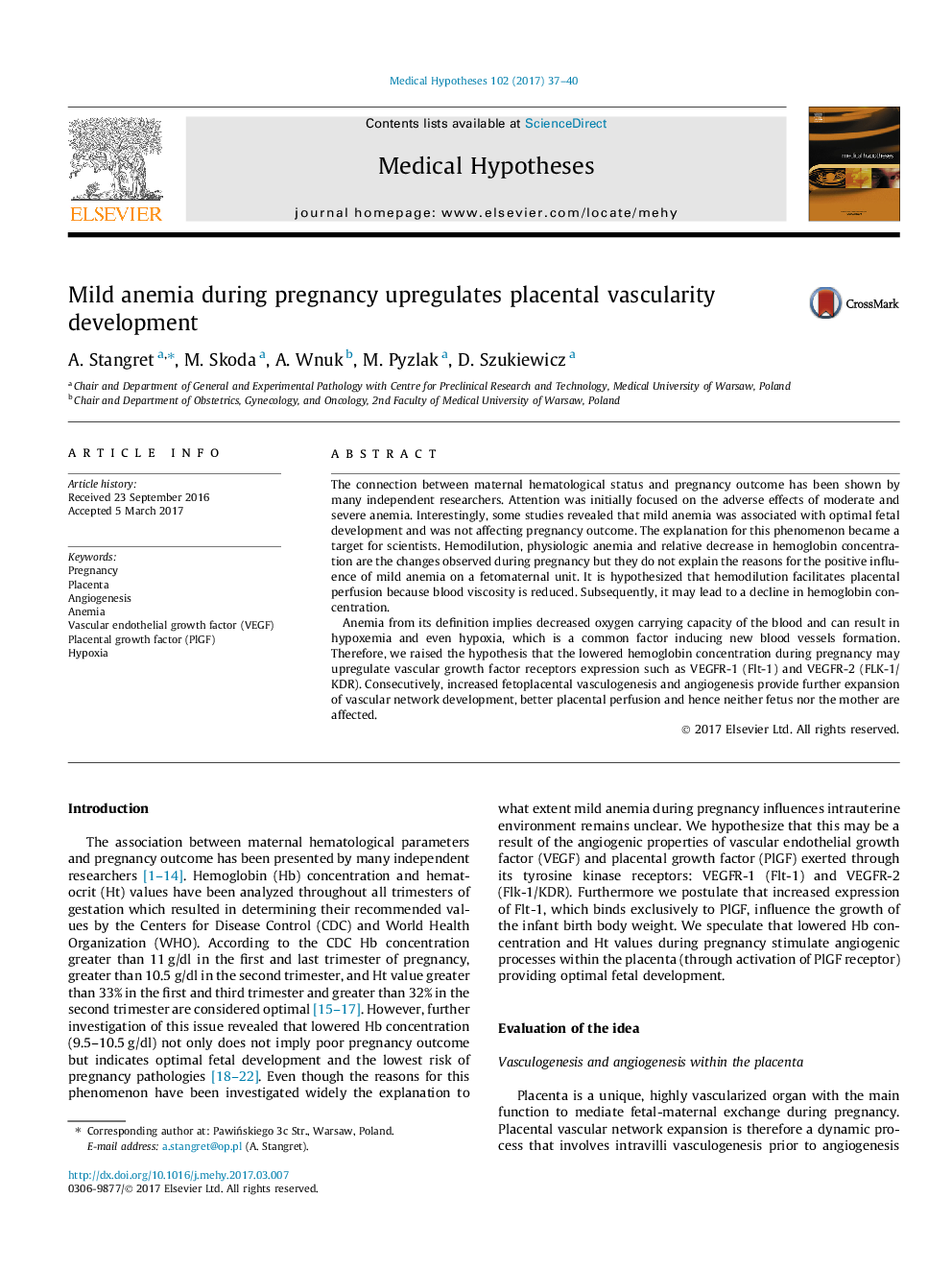| Article ID | Journal | Published Year | Pages | File Type |
|---|---|---|---|---|
| 5548490 | Medical Hypotheses | 2017 | 4 Pages |
The connection between maternal hematological status and pregnancy outcome has been shown by many independent researchers. Attention was initially focused on the adverse effects of moderate and severe anemia. Interestingly, some studies revealed that mild anemia was associated with optimal fetal development and was not affecting pregnancy outcome. The explanation for this phenomenon became a target for scientists. Hemodilution, physiologic anemia and relative decrease in hemoglobin concentration are the changes observed during pregnancy but they do not explain the reasons for the positive influence of mild anemia on a fetomaternal unit. It is hypothesized that hemodilution facilitates placental perfusion because blood viscosity is reduced. Subsequently, it may lead to a decline in hemoglobin concentration.Anemia from its definition implies decreased oxygen carrying capacity of the blood and can result in hypoxemia and even hypoxia, which is a common factor inducing new blood vessels formation. Therefore, we raised the hypothesis that the lowered hemoglobin concentration during pregnancy may upregulate vascular growth factor receptors expression such as VEGFR-1 (Flt-1) and VEGFR-2 (FLK-1/KDR). Consecutively, increased fetoplacental vasculogenesis and angiogenesis provide further expansion of vascular network development, better placental perfusion and hence neither fetus nor the mother are affected.
